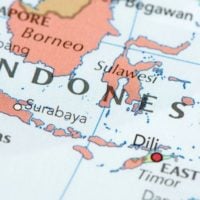Deadline: 20-Apr-22
The European Commission is inviting proposals for the impact of spatial mobility on European demographics, society, welfare system, and labor market.
Scope
Proposals should analyse drivers and effects of demographically declining and left behind areas in Europe. They may develop a typology of such areas that would help in developing policies best aligned with the needs of different areas. Projects should focus in particular on spatial mobility, including, but not limited to, urban-rural, inter-regional and intra-EU mobility, and the interactions of different policies affecting these flows, as well as linkages to mobility flows of non-European migrants. The proposals should assess, in an interdisciplinary way, the pros and cons of spatial mobility from an individual, economic, labour market and administrative perspective in both sending and receiving areas, in order to provide a new framework to understand these flows. Different temporal forms of mobility, such as circular, chained, short term and permanent, should be addressed, as well as differences between labour, student, life style, leisure and retirement motivated mobility. Proposals should also include considerations on the circulation of workers in the EU and on the disruption caused by the COVID-19 emergency and its impact on European borders and freedom of movement.
Funding Information
The check will normally be done for the coordinator if the requested grant amount is equal to or greater than EUR 500 000, except for:
- public bodies (entities established as a public body under national law, including local, regional or national authorities) or international organisations; and
- cases where the individual requested grant amount is not more than EUR 60 000 (lowvalue grant).
Expected Outcomes
Projects should contribute to all of the following expected outcomes:
- Analyse the demographic, economic, social and cultural effects of mobility in European countries, from a sending and receiving side.
- Envisage policies that counter brain drain and labour exploitation phenomena and enhance joint building of human capital across regions and countries.
- Identify effective policies to promote rural development and sustainability and address regional inequalities.
Eligibility Criteria
To be eligible for funding, applicants must be established in one of the eligible countries, i.e.:
- the Member States of the European Union, including their outermost regions;
- the Overseas Countries and Territories (OCTs) linked to the Member States;
- eligible non-EU countries:
- countries associated to Horizon Europe
- low- and middle-income countries.
For more information, visit https://bit.ly/3ImT09T









































